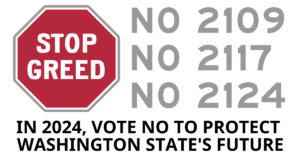Via Strange Bedfellows comes word of a new performance audit released by the State Auditor’s office and conducted by Ernst & Young, who declared in their report that “Washington State Ferries provides a level of service above what traffic volumes demand.” The audit says this unnecessary service will cost the state $100 million over the next 10 years.
The state Department of Transportation has responded to the audit, noting:
“The Department agrees that some sailings have space available during off peak hours…However, several factors will affect how the Department addresses this recommendation.
“As a mass transit provider, there must be a balance in accommodating peak demand periods with providing some level of connection and usefulness to customers in off-peak hours. In the manner that highways are not closed during hours of low utilization, canceling off-peak ferry sailing mush consider factors in addition to utilization.”
[…]
“While this finding is worthy of further consideration, it is premature to assume cost savings of almost $10 million (per year) from service cuts.”
While performance audits have the potential to be useful and helpful in identifying modest cost savings, what we don’t need is auditors and accountants running state government agencies. The foremost goal of the state ferry system should be to provide quality service to the people of Washington State, not transport humans as cheaply as possible.
We opposed I-900 in 2005 because it gave too much power to the auditor’s office and went beyond what was needed and appropriate.
At some point in the future, I-900 will have to be revised, repealed, or amended to curtail abuse or prevent the possibility of abuse, because the initiative’s language practically invites it.
Checks and balances were apparently not a concept that Tim Eyman learned when he was in high school.


